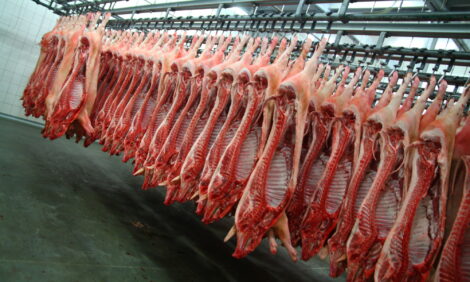



Upcoming Swine Training Programs Focus on Conventional and Alternative Breeding Practices
By the University of Minnesota Swine Extension - Conventional and alternative breeding and gestation management are the focus of Pork Checkoff-funded Swine Training Programs scheduled for July in Waseca and Morris.Breeding and Gestation Management will be July 27 and 28 at the University of Minnesota Southern Research and Outreach Center, Waseca, and Alternative Breeding and Gestation Management will be July 31 and Aug. 1 at the University of Minnesota West Central Research and Outreach Center, Morris.
At the Waseca workshop, instructors will examine and evaluate indoor confinement housing systems utilizing individual stalls and large group housing. At the Morris workshop, instructors will examine and evaluate alternative housing systems, including large group pens in hoop buildings and the Swedish deep-bedded system, in addition to comparing these systems to conventional confinement.
The curriculum for both sessions will be similar in content but will differ slightly to meet enrollees’ educational objectives and to address variations between conventional and alternative systems.
These two-day intensive workshops are designed to increase participants understanding of the factors involved to successfully breed females and to care for them during gestation. The course is appropriate for people with a limited knowledge of pork production, veterans wishing to review the basics and stay abreast on recent developments, and producers who seek researchedbased information on alterative systems. Topics that will be covered in the workshop include:
-
Rearing Replacement Females: Nutritional needs, body condition, proper environment, evaluation and selection guidelines, biosecurity, isolation and acclimation, successful gilt introduction
-
Mating Systems: Pen vs. hand vs. A.I. mating, production schedules, pig flow, balancing culls with replacements, record keeping, vaccination/health management, feeders, lighting, flooring and sanitation
-
Breeding Practices: Environmental stressors, animal handling, estrus detection, estrus cycles, reproductive physiology, boar management (semen collection, processing, evaluation, handling and storage)
-
Pregnancy Management: Minimizing environmental stress, handling practices, timing issues, pregnancy detection, proper sow feeding
-
Preparing for Parturition: Feeding to proper body condition, preparing sows for farrowing, performance targets, record evaluations and monitoring, assessing and troubleshooting reproductive failures
Classroom instruction on the first day of the program is from 11 a.m. to 7 p.m. A hands-on session, conducted at the centers’ swine research facilities, are conducted the second day of the program from 8 am to noon. To maximize student learning and understanding, the hands-on session incorporates numerous activities relating to material covered in the classroom portion of the course.
Class participants will be automatically certified or recertified under the Pork Quality Assurance (PQA) program by completing the course. U of M faculty and swine industry experts provide instruction for the course. Cost of the program is $100 per person and includes learning materials, meals, breaks, instructor fees and biosecurity clothing for hands-on training sessions. Additional participants from the same production system may register for $50 each. Individuals wishing to participate in multiple courses should call Minnesota Pork Board for a reduced fee schedule. Overnight lodging is the student’s responsibility.
For more information, contact U of M Swine Extension Educator Dr. Mark Whitney at (507) 389- 5541 or Minnesota Pork Board Education Director Trudy Wastweet at (507) 345-8814. A registration form is available at www.mnpork.com.
Source: University of Minnesota Swine Extension - May 2006









